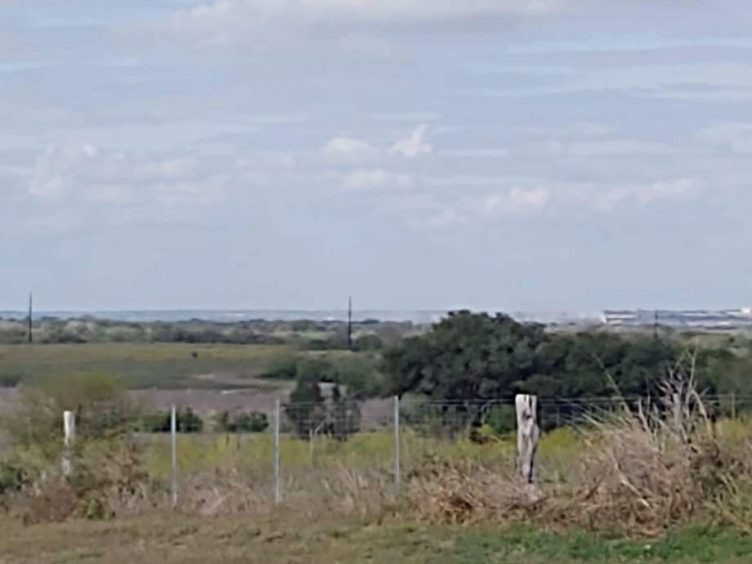
Oklahoma exploration and production Devon Energy is one step away from capping a blowout at a natural gas well that has prompted authorities to seal off thousands of acres of land near the Eagle Ford Shale towns of Yorktown and Nordheim.
No injuries have been reported but an accident at a natural gas well off Cotton Patch Road and FM 952 in DeWitt County has been spewing natural gas into the air since a Nov. 1.
In a Monday afternoon statement, Devon reported that crews were able to install a capping stack on the well over the weekend. The well control equipment will enable the company to reduce natural gas flowing from the well and ultimately regain control.
A cause of the accident it not clear but in a statement released on Tuesday afternoon, but the company has been working with county and state officials to keep a two-mile radius equal to more than 8,000 acres of land sealed off.
Devon is providing lodging, meals and other needs to several families who were evacuated.
Numerous other residents and neighbors expressed concern on Facebook about their safety and the safety of their livestock, which the company assured the DeWitt County Office of Emergency Management would be taken care of.
The Texas Commission on Environmental Quality and the Railroad Commission of Texas, the state agency that regulates the oil and natural gas industry, have dispatched inspectors to the site.
Located on Devon Energy’s Migura B lease, the well was originally drilled and completed by the shale drilling arm of British oil major BP but was transferred to Devon on Oct. 28, Railroad Commission records show.
Sharon Wilson, a Dallas-based anti-hydraulic fracturing activist with the environmental group Earthworks, said the rural poor continue to pay a heavy price for accidents in the oil fields and that regulators do not enforce the law. There have been at least nine blowouts in Texas through July of this year, Railroad Commission records show.
“This blowout is causing spikes of hydrocarbons on state air monitors over 30 miles away,” Wilson said. “These intense emission events push us closer to the edge of global climate emergency and harm health locally. It is clear that we need to stop oil and gas expansion and heavily regulate existing facilities while transitioning to clean, renewable energy.
This article first appeared on the Houston Chronicle – an Energy Voice content partner. For more from the Houston Chronicle click here.